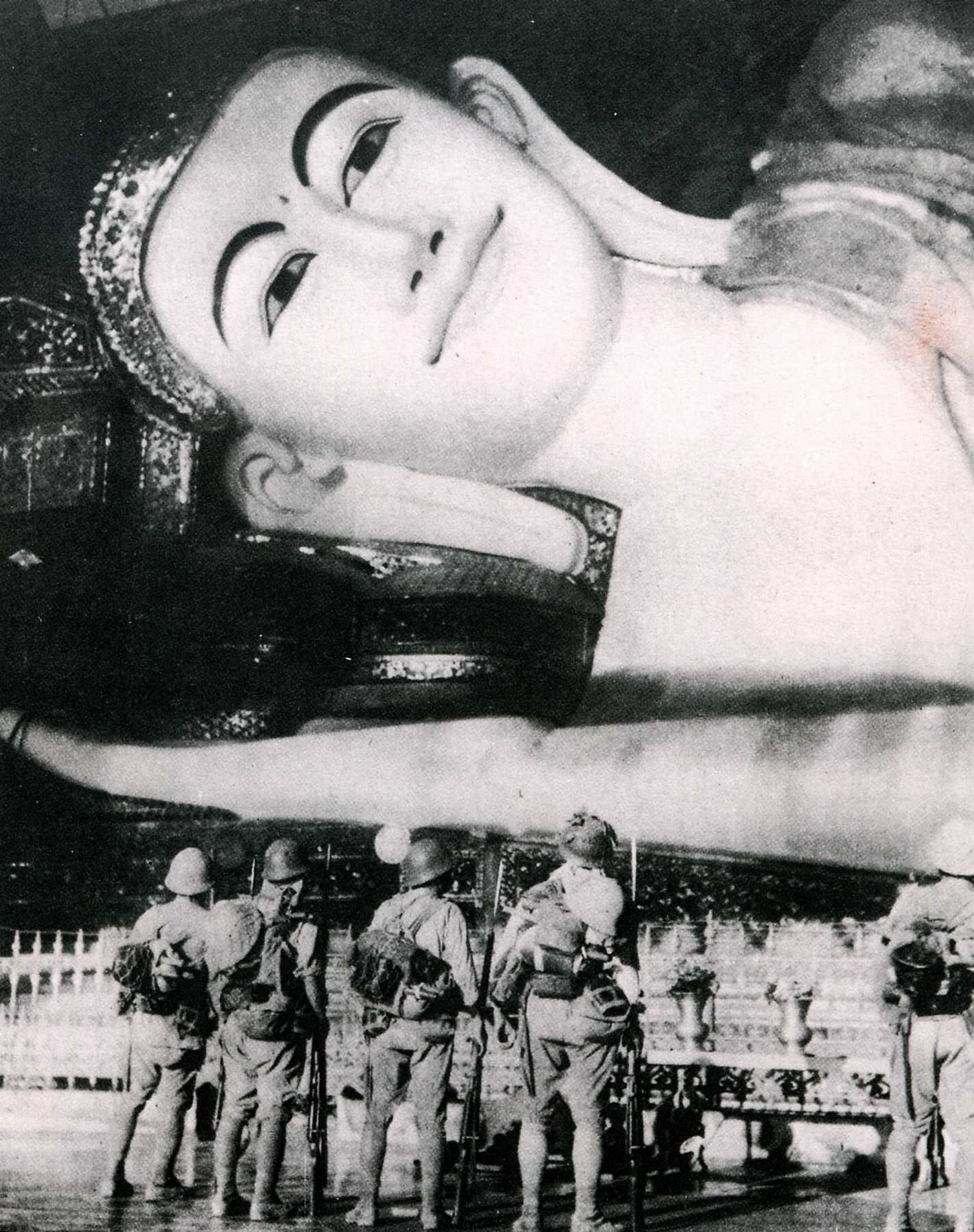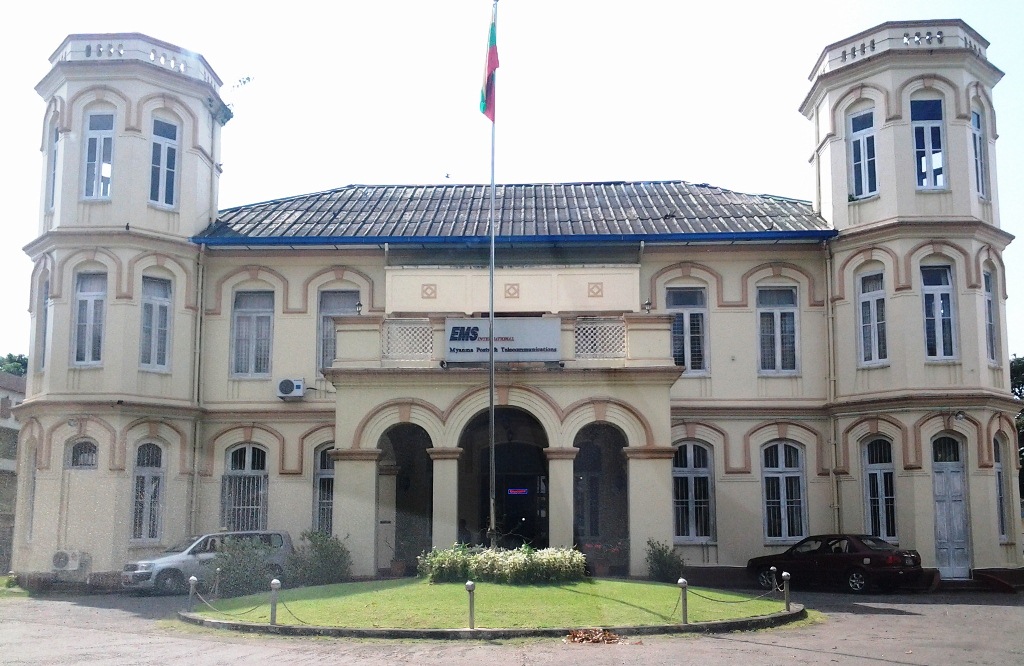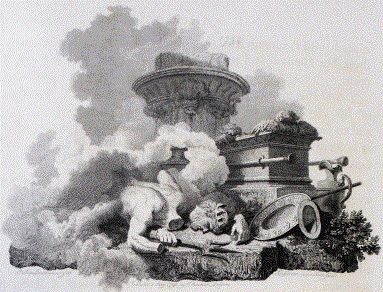|
Theippan Maung Wa
Theippan Maung Wa ( my, သိပ္ပံမောင်ဝ ; 5 June 1899 – 6 June 1942) was a Burmese writer, and one of the pioneers of the '' Hkit San'' literary movement. The movement searched for a new style and content in Burmese literature before the Second World War starting with ''Hkit san ponbyin'' (''Experimental Tales'', 1934, 1938). Early works He started writing newspaper articles whilst still in high school assuming the pen name Waziya Tint. In 1919, he graduated from the Maha Buddhaghosa High School with distinctions in Burmese and Pali literature. Soon after he began his studies in Rangoon College in 1920, the first university student strike in the history of Burma broke out, and he left university to teach at the first of the National Schools that came into being, as an act of defiance against the colonial education system, until 1923. Sein Tin resumed his studies later and graduated B.A. Hons. with distinctions in Burmese in 1927, the first student in ... [...More Info...] [...Related Items...] OR: [Wikipedia] [Google] [Baidu] |
Mawlamyaing
Mawlamyine (also spelled Mawlamyaing; , ; th, เมาะลำเลิง ; mnw, မတ်မလီု, ), formerly Moulmein, is the fourth-largest city in Myanmar (Burma), ''World Gazetteer'' south east of Yangon and south of Thaton, at the mouth of Thanlwin (Salween) River. The first capital of British Burma, the city is currently the capital and largest city of Mon State and the main trading centre and seaport in south eastern Myanmar. Etymology and legend The Mon name which was previously used for Mawlamyine, ''Moulmein'' (; ) means "damaged eye" or "one-eyed man." According to legend, a Mon king had a powerful third eye in the centre of his forehead, able to see what was happening in neighbouring kingdoms. The daughter of one of the neighbouring kings was given in marriage to the three-eyed king and managed to destroy the third eye. The Burmese name "Mawlamyine" is believed to be a corruption of the Mon name. Moulmein was also spelled as ''Maulmain or Moulmain or Ma ... [...More Info...] [...Related Items...] OR: [Wikipedia] [Google] [Baidu] |
Ganda Lawka
''Ganda Lawka'' ( my, ဂန္တလောက, , lit. "World of Books") was a Burmese language monthly magazine published by the Burma Education Extension Association The Burma Education Extension Association ( my, မြန်မာနိုင်ငံ ပညာ ပြန့်ပွားရေး အသင်း) was a Rangoon (Yangon)-based educational organization founded by JS Furnivall to promote "the .... The magazine was a sister publication of '' The World of Books'', the English language monthly started by JS Furnivall, and "welcomed modern Burmese prose, original ideas and criticism."Allott 1996: 17 It was edited by a succession of young Burmese writers, including Zawgyi, Min Thu Wun, Sein Tin, and Nwe Soe.Nwe Soe 2010: 5 References Bibliography * * {{cite book , author=Nwe Soe , title=Sein-lan-thaw Taung-gon: Selected works of Nwe Soe , publisher=Ya-Pyei Publishing , year=2010 , language=Burmese Burmese magazines ... [...More Info...] [...Related Items...] OR: [Wikipedia] [Google] [Baidu] |
Japanese Occupation Of Burma
The Japanese occupation of Burma was the period between 1942 and 1945 during World War II, when Burma was occupied by the Empire of Japan. The Japanese had assisted formation of the Burma Independence Army, and trained the Thirty Comrades, who were the founders of the modern Armed Forces (''Tatmadaw''). The Burmese hoped to gain support of the Japanese in expelling the British, so that Burma could become independent.Micheal Clodfelter. Warfare and Armed Conflicts: A Statistical Reference to Casualty and Other Figures, 1500–2000. 2nd Ed. 2002 . p. 556Werner Gruhl, Imperial Japan's World War Two, 1931–1945 Transaction 2007 (Werner Gruhl is former chief of NASA's Cost and Economic Analysis Branch with a lifetime interest in the study of the First and Second World Wars.) In 1942, Japan invaded Burma and nominally declared the colony independent as the ''State of Burma'' on 17 May 1942. A puppet government led by Ba Maw was installed. However, many Burmese began to believe the ... [...More Info...] [...Related Items...] OR: [Wikipedia] [Google] [Baidu] |
Sarpay Beikman
Sarpay Beikman ( my, စာပေဗိမာန်; ) originated as the Burmese Translation Society. Its first President was Prime Minister U Nu, who started a Burmese translation job at Judson College (now University of Yangon). The purpose was to translate world culture, literature, education for the Burmese public. In 1963, the society was absorbed into the Ministry of Information's Printing and Publishing Enterprise as the Sarpay Beikman Literature House, and the mandate was extended to encourage local writers and to print and publish books of all types. The society presents the annual Sarpay Beikman Manuscript Awards and Burma National Literature Awards for excellent new unpublished and published writing in various categories. Early years After independence the Burmese Translation Society decided that independent Burma need a Burmese Encyclopedia and began the project to compile one in May 1948. Initially, they wanted to translate Sir John Hamilton's encyclopedia into 10 vo ... [...More Info...] [...Related Items...] OR: [Wikipedia] [Google] [Baidu] |
Textbook
A textbook is a book containing a comprehensive compilation of content in a branch of study with the intention of explaining it. Textbooks are produced to meet the needs of educators, usually at educational institutions. Schoolbooks are textbooks and other books used in schools. Today, many textbooks are published in both print and digital formats. History The history of textbooks dates back to ancient civilizations. For example, Ancient Greeks wrote educational texts. The modern textbook has its roots in the mass production made possible by the printing press. Johannes Gutenberg himself may have printed editions of ''Ars Minor'', a schoolbook on Latin grammar by Aelius Donatus. Early textbooks were used by tutors and teachers (e.g. alphabet books), as well as by individuals who taught themselves. The Greek philosopher Socrates lamented the loss of knowledge because the media of transmission were changing. Before the invention of the Greek alphabet 2,500 years ago, knowledge ... [...More Info...] [...Related Items...] OR: [Wikipedia] [Google] [Baidu] |
British Rule In Burma
( Burmese) , conventional_long_name = Colony of Burma , common_name = Burma , era = Colonial era , event_start = First Anglo-Burmese War , year_start = 1824 , date_start = 5 March , event_end = Independence declared , year_end = 1948 , date_end = 4 January , life_span = 1824–1948 , event1 = Anglo-Burmese Wars , date_event1 = 1824–1826, 1852–1853, 1885 , event2 = Separation from British India , date_event2 = 1937 ( Government of Burma Act) , event3 = Japanese and Thai occupation , date_event3 = 1942–1945 , p1 = British Raj , flag_p1 = British_Raj_Red_Ensign.svg , p2 = Konbaung Dynasty , flag_p2 = Flag of Konbaung Dynasty (Nonrectangular).svg , p3 = State of Burma , ... [...More Info...] [...Related Items...] OR: [Wikipedia] [Google] [Baidu] |
United Kingdom
The United Kingdom of Great Britain and Northern Ireland, commonly known as the United Kingdom (UK) or Britain, is a country in Europe, off the north-western coast of the continental mainland. It comprises England, Scotland, Wales and Northern Ireland. The United Kingdom includes the island of Great Britain, the north-eastern part of the island of Ireland, and many smaller islands within the British Isles. Northern Ireland shares a land border with the Republic of Ireland; otherwise, the United Kingdom is surrounded by the Atlantic Ocean, the North Sea, the English Channel, the Celtic Sea and the Irish Sea. The total area of the United Kingdom is , with an estimated 2020 population of more than 67 million people. The United Kingdom has evolved from a series of annexations, unions and separations of constituent countries over several hundred years. The Treaty of Union between the Kingdom of England (which included Wales, annexed in 1542) and the Kingdom of Scotland in 170 ... [...More Info...] [...Related Items...] OR: [Wikipedia] [Google] [Baidu] |
Indian Civil Service
The Indian Civil Service (ICS), officially known as the Imperial Civil Service, was the higher civil service of the British Empire in India during British rule in the period between 1858 and 1947. Its members ruled over more than 300 million people in the Presidencies and provinces of British India and were ultimately responsible for overseeing all government activity in the 250 districts that comprised British India. They were appointed under Section XXXII(32) of the Government of India Act 1858, enacted by the British Parliament. The ICS was headed by the Secretary of State for India, a member of the British cabinet. At first almost all the top thousand members of the ICS, known as "Civilians", were British, and had been educated in the best British schools.Surjit Mansingh, ''The A to Z of India'' (2010), pp 288–90 At the time of the creation of India and Pakistan in 1947, the outgoing Government of India's ICS was divided between India and Pakistan. Although these are no ... [...More Info...] [...Related Items...] OR: [Wikipedia] [Google] [Baidu] |
Christ Church, Oxford
Christ Church ( la, Ædes Christi, the temple or house, '' ædēs'', of Christ, and thus sometimes known as "The House") is a constituent college of the University of Oxford in England. Founded in 1546 by King Henry VIII, the college is uniquely a joint foundation of the university and the cathedral of the Oxford diocese, Christ Church Cathedral, which both serves as the college chapel and whose dean is ''ex officio'' the college head. The college is amongst the largest and wealthiest of colleges at the University of Oxford, with an endowment of £596m and student body of 650 in 2020. As of 2022, the college had 661 students. Its grounds contain a number of architecturally significant buildings including Tom Tower (designed by Sir Christopher Wren), Tom Quad (the largest quadrangle in Oxford), and the Great Dining Hall, which was the seat of the parliament assembled by King Charles I during the English Civil War. The buildings have inspired replicas throughout the world in a ... [...More Info...] [...Related Items...] OR: [Wikipedia] [Google] [Baidu] |
Ludu U Hla
Ludu U Hla ( my, လူထုဦးလှ; ; 19 January 1910 – 7 August 1982) was a Burmese journalist, publisher, chronicler, folklorist and social reformer whose prolific writings include a considerable number of path-breaking nonfiction works. He was married to fellow writer and journalist Ludu Daw Amar. He collected oral histories from people in a diverse range of occupations which included a boatmaster on the Irrawaddy, a bamboo raftsman on the Salween, the keeper of a logging elephant, a broker for Steele Bros. (a large trading company during the colonial period), a gambler on horses, a bureaucrat and a reporter. These were published in a series of books titled "I the ------". A library of 43 volumes of folk tales, a total of 1597 stories, that he collected between 1962 and 1977 from most of the ethnic minorities of Burma was a truly Herculean undertaking.''Ludu chit tha hmya Ludu U Hla'' (Ludu U Hla, Beloved of the People) in Burmese inc. a small English section 1 ... [...More Info...] [...Related Items...] OR: [Wikipedia] [Google] [Baidu] |
Kyipwayay
''Kyipwayay'' ( my, ကြီးပွားရေး, , lit. "Growth") was a pre-World War II Burmese language monthly magazine, closely identified with the ''Khit-San Sarpay'' movement, the first modern literary movement in the history of Burmese literature.Swan Yi : 11 The magazine was founded by U Thein in Yangon Yangon ( my, ရန်ကုန်; ; ), formerly spelled as Rangoon, is the capital of the Yangon Region and the largest city of Myanmar (also known as Burma). Yangon served as the capital of Myanmar until 2006, when the military government ... but later taken over by U Hla and moved to Mandalay in 1933. The monthly was published even during the Japanese occupation of the country (1942–1945). After the war, U Hla transformed Kyipwayay into the Ludu Journal. References Bibliography * {{cite web , last=Swan Yi , first=Maung , title="'CHEWING THE WEST': The Development of Modern Burmese Literature Under the Influence of Western Literature , url=http: ... [...More Info...] [...Related Items...] OR: [Wikipedia] [Google] [Baidu] |
Dagon Magazine
Dagon ( he, דָּגוֹן, ''Dāgōn'') or Dagan ( sux, 2= dda-gan, ; phn, 𐤃𐤂𐤍, Dāgān) was a god worshipped in ancient Syria across the middle of the Euphrates, with primary temples located in Tuttul and Terqa, though many attestations of his cult come from cities such as Mari and Emar as well. In settlements situated in the upper Euphrates area he was regarded as the "father of gods" similar to Mesopotamian Enlil or Hurrian Kumarbi, as well as a lord of the land, a god of prosperity, and a source of royal legitimacy. A large number of theophoric names, both masculine and feminine, attests that he was a popular deity. He was also worshiped further east, in Mesopotamia, where many rulers regarded him as the god capable of granting them kingship over the western areas. Attestations of Dagan from coastal areas are much less frequent and come mostly from the northern city of Ugarit, where Dagan's cult had a limited scope. According to the Hebrew Bible, Dagan was als ... [...More Info...] [...Related Items...] OR: [Wikipedia] [Google] [Baidu] |







